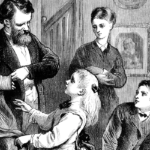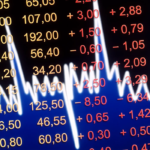The concept of the traditional family, with a male breadwinner and a female homemaker, has been deeply ingrained in American culture for centuries. This model is often idealized as the natural and most stable form of family life. However, the breadwinner-homemaker structure is not a natural or inevitable outcome but rather a product of historical, social, and political factors, … [Read more...] about The Breadwinner Model: How Government Policies Shaped the Traditional Family
BUSINESS & ECONOMICS
The Great Transportation Debate: Horses, Electric Vehicles, and Gas Trucks
The early 20th century was a pivotal moment in transportation history, marking the transition from horse-drawn vehicles to motorized alternatives. This period saw the rise of electric vehicles and gas-powered trucks, each vying for dominance as they competed with traditional horse-drawn carriages. The competition between these transportation modes was not just a technological … [Read more...] about The Great Transportation Debate: Horses, Electric Vehicles, and Gas Trucks
Meat Markets: A Historical Perspective on Regulation and Consumer Protection
The relationship between government regulation and the meat industry has been a complex and evolving one. While laissez-faire economics often championed minimal government intervention, historical evidence suggests that even in the most market-oriented societies, governments have played a significant role in overseeing the meat trade. This article explores the historical … [Read more...] about Meat Markets: A Historical Perspective on Regulation and Consumer Protection
Cotton: The Fabric of Capitalism
Cotton, a humble fiber, played a pivotal role in the development of capitalism. This versatile commodity shaped global trade, fueled industrialization, and transformed societies around the world. In his groundbreaking book Empire of Cotton,historian Sven Beckert explores the complex relationship between cotton and the rise of capitalism. The Global Reach of … [Read more...] about Cotton: The Fabric of Capitalism
Fiduciary Duty and ESG Factors: A Balancing Act
Asset managers have a fiduciary duty to act in the best interests of their clients. This duty often involves maximizing financial returns while considering the client's risk tolerance. However, the growing importance of Environmental, Social,and Governance (ESG) factors has raised questions about the scope of fiduciary duty and whether it extends to these considerations. The … [Read more...] about Fiduciary Duty and ESG Factors: A Balancing Act





